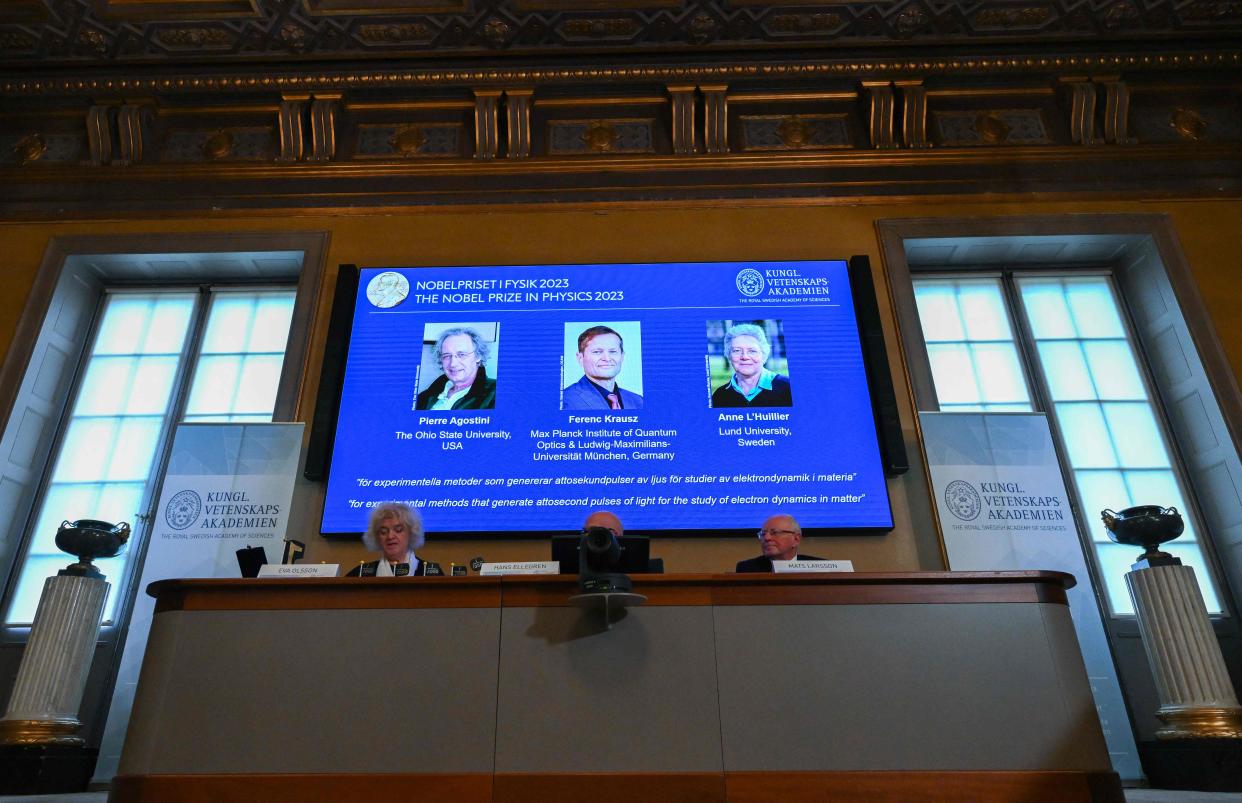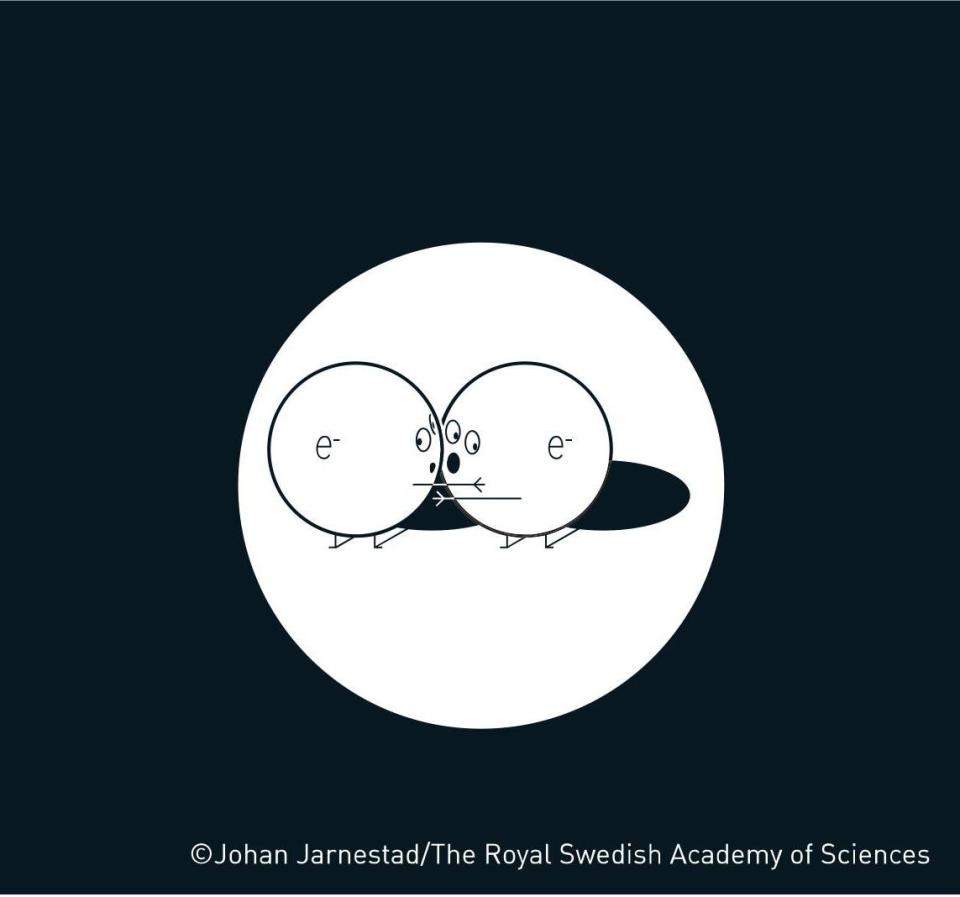Ohio State scientist among three researchers awarded Nobel Prize in Physics

Three scientists have been awarded the 2023 Nobel Prize in Physics for their experiments creating pulses of light so brief that they could give humanity "new tools for exploring the world of electrons inside atoms and molecules."
The prestigious annual prize went to Pierre Agostini, an emeritus professor at The Ohio State University, Ferenc Krausz, the director at the Max Planck Institute of Quantum Optics at Garching and professor at Ludwig Maximilian University of Munich in Germany and Anne L’Huillier, a professor at Lund University in Sweden.
Their prize came after the three scientists "demonstrated a way to create extremely short pulses of light that can be used to measure the rapid processes in which electrons move or change energy," according to the Royal Swedish Academy of Science.
The laurates' experiments produced extremely short pulses of light, called attoseconds, that were used to demonstrate it was possible to obtain images of processes inside atoms and molecules. According to the Royal Swedish Academy of Science, attoseconds are so short that there are as many in one second has there have been seconds since the birth of the universe.

The Nobel Prize was 11 million Swedish krona, or the equivalent of around $993,000, which will be shared equally between the laureates.
The other Nobel Prizes – in chemistry, literature, peace and economic sciences – will be awarded every day for the remainder of this week and on Monday, Oct. 9.
Who won the Nobel Prize in Medicine?
On Monday, the Nobel Prize in Physiology or Medicine was given to Katalin Karikó and Dr. Drew Weissman, both professors at the University of Pennsylvania, for research that led to the mRNA COVID-19 vaccines.
More: Two Penn scientists awarded Nobel Prize in Medicine for work with mRNA, COVID-19 vaccines
This article originally appeared on USA TODAY: 2023 Nobel Prize in Physics winners: Agostini, Krausz, L’Huillier

